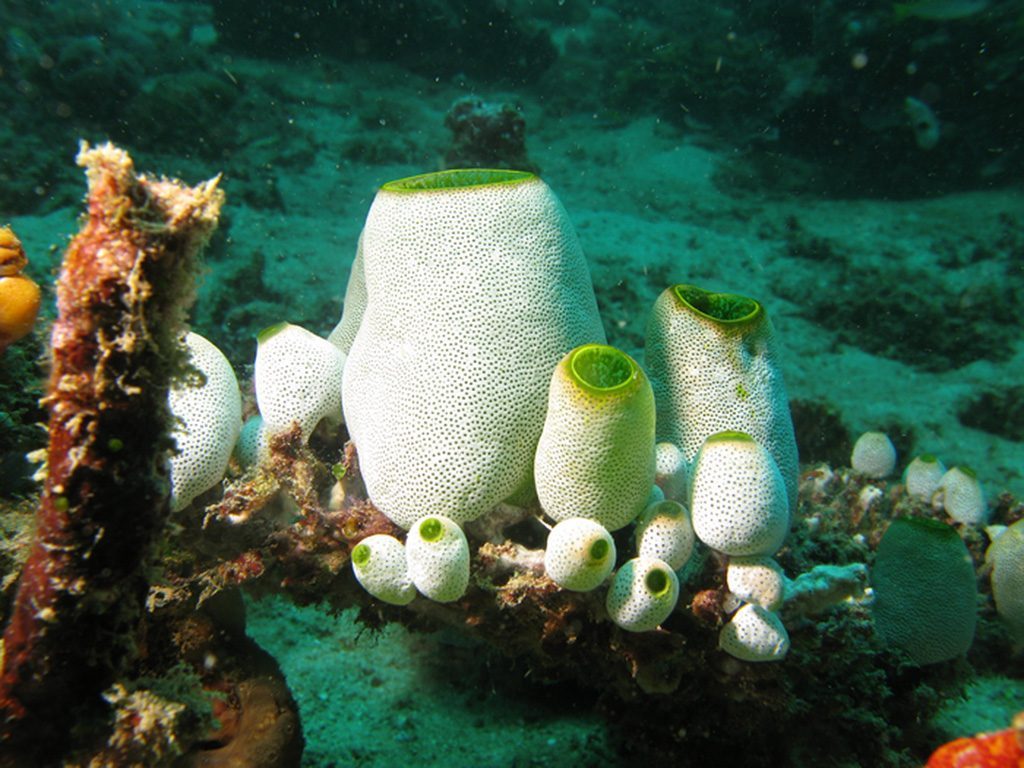
Here, a colony of sea squirts grows on the sea floor – this sea creature is not only a delicacy in Asia, but is even said to be able to stop aging.
Whether it’s shallow coastal waters or the deep sea, the adult sea squirts will settle anywhere in the sea, as long as the water is sufficiently salty. They hold on to rocks or corals with the underside of their cylinder-like body, while the upper opening, here clearly colored green, is used to take in water. Inside the white cylinder, the water is filtered for plankton-like particles, which are the sea squirt’s main food source.
In Japan and Korea, the sea creature is traditionally part of the menu and is eaten raw there. But sea squirts could be much more than a source of food in the future: scientists working with Jinxin Gu from Jiao Tong University in Shanghai have envisaged a special ingredient in sea squirts – the so-called plasmalogens. These substances, which are essential for our heart, brain and immune system, become less available to our body as we age, which is associated with diseases such as Alzheimer’s.
In experiments on older mice, Gu and his colleagues were able to show that the animals showed improved orientation and learning ability after being fed plasmalogen supplements. Positive effects were also evident in the brain, since the number of nerve connections was increased – a kind of reversal of the typical aging process. “Our results indicate that plasmalogens not only stop cognitive decline in the brain, but can even reverse it,” reports Gu’s colleague Lei Fu. According to the researchers, these animals even grew new and stronger hair than the mice that did not receive the plasmalogen supplement.
How exactly the plasmalogen molecules can stop the neurodegenerative degradation is not yet clear, but Fu is optimistic about the future: “The oral intake of plasmalogens could be a therapeutic strategy to improve the cognitive performance of older people”.